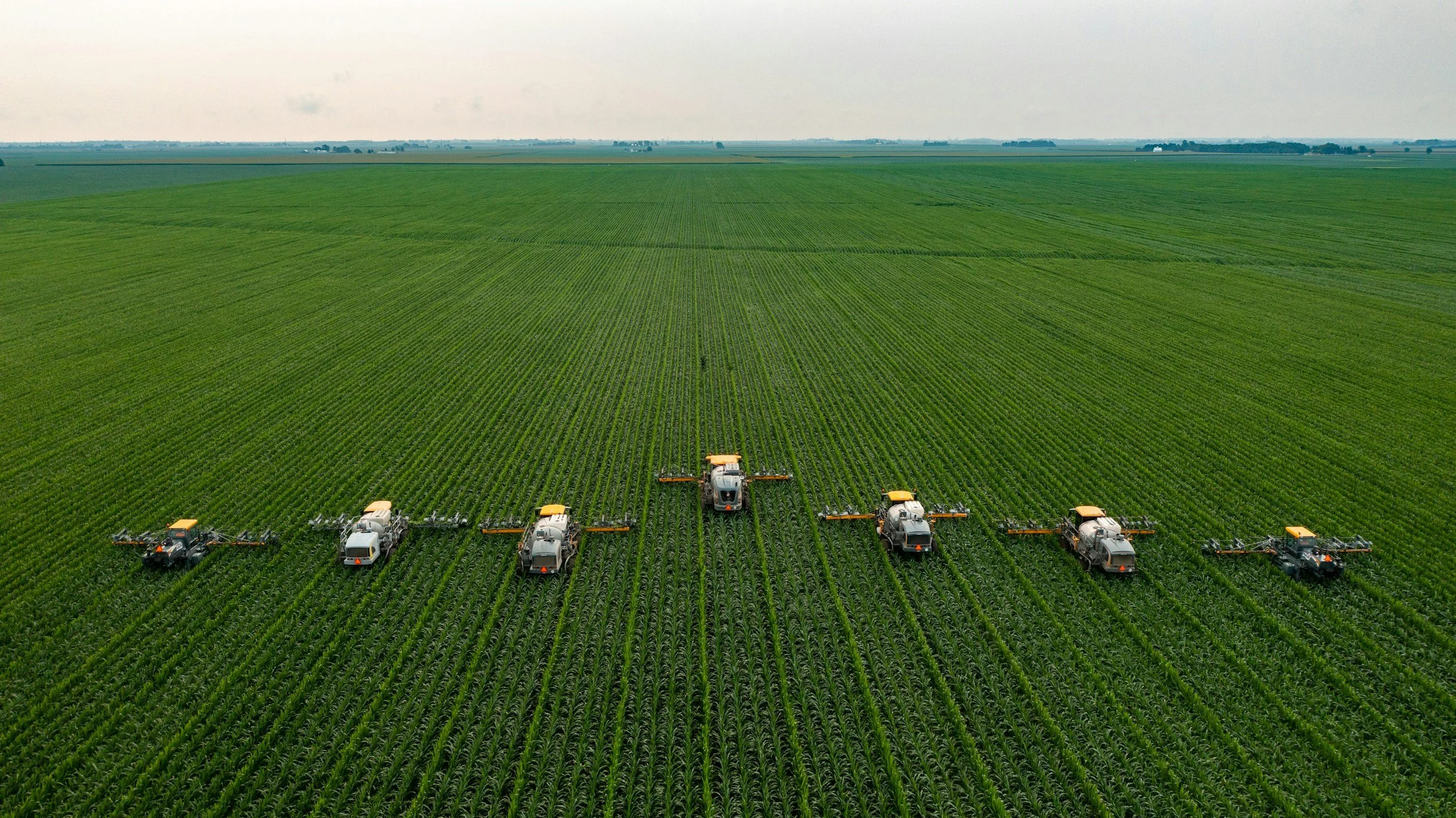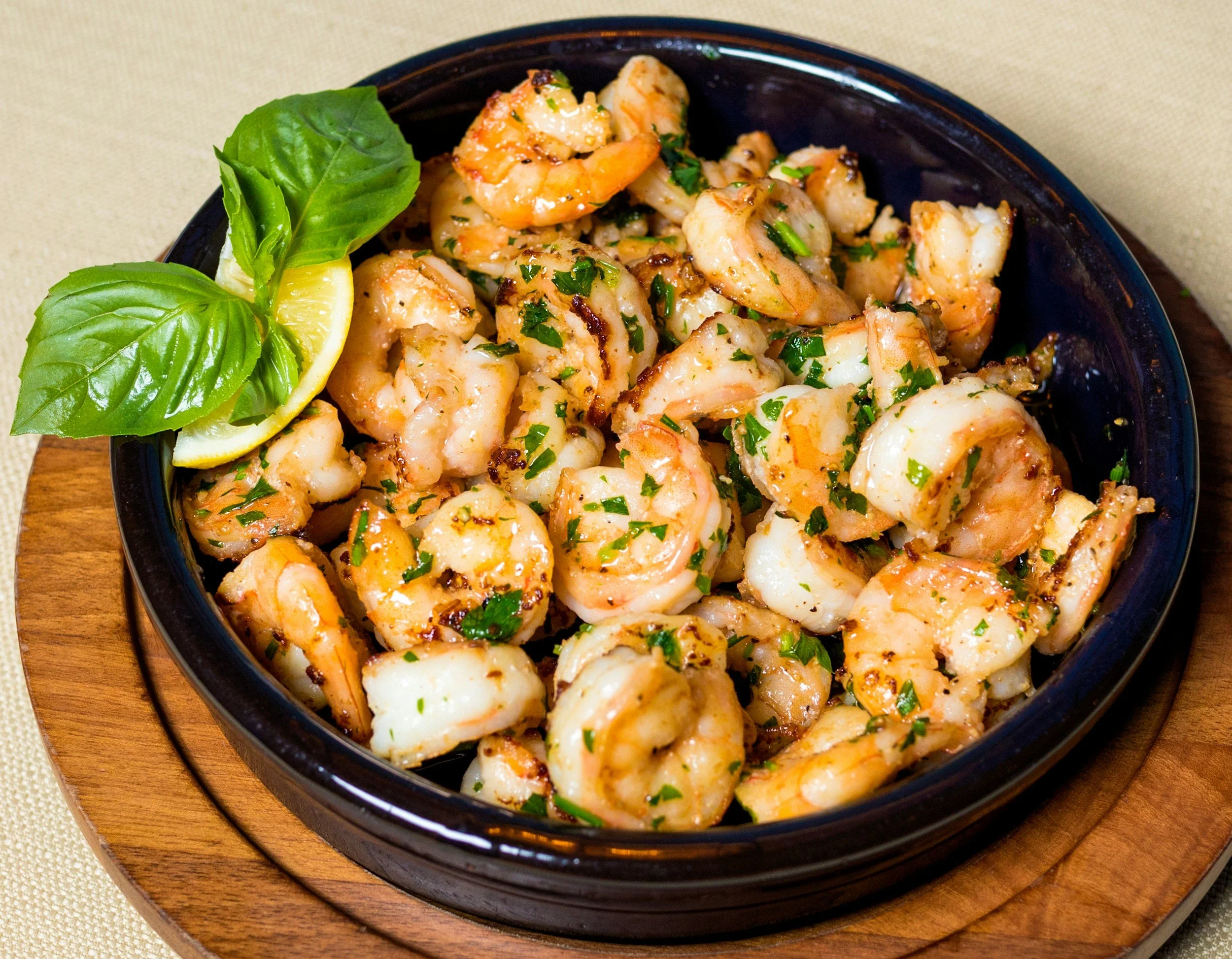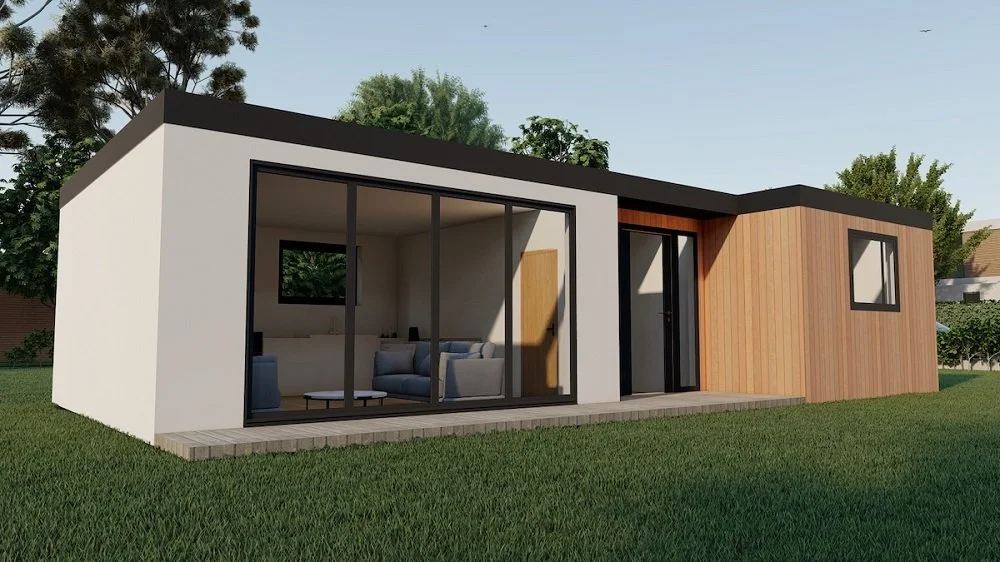10 Reasons to Grow Your Own Organic Food in Containers
/Have you followed the recent news in the US about the peer-reviewed study that determined that 80 percent of Americans test positive for the synthetic pesticide chlormequat? This pesticide has been found in conventionally-grown grain crops like oats, wheat and barley, and has been linked to fertility problems in animal studies. Regular exposure to pesticides like these is at least partly responsible for recurring health crises around the world, including major diseases like cancer and cardiovascular, neurological, metabolic and psychological disorders. By growing at least some of your own food, you can reduce your exposure to these harmful chemicals and begin to take control of your health. Container gardening is a great way to get started.
Growing food organically in containers can be a successful alternative for those who have had disappointing results with traditional gardening methods in the past. Container gardening is also a beginner-friendly activity, and it makes a lot of sense for people who don't have access to land, or who only have a small space to work with. Even if all you have is a balcony, porch, or sunny window, you can grow food organically.
There are a lot more than 10 reasons you should start growing your own food in a container garden but here are some of the top benefits:
1. More control (great for beginners!)
One of the biggest benefits of growing your own food in containers is the level of control you have over the entire process. As a beginner gardener, this can be especially helpful as you learn the ropes. You get to choose the type of soil, fertilizers, and pesticides (if any) that you use, ensuring that you are growing your produce in a way that aligns with your values and goals. This level of control also allows you to closely monitor the health of your plants, making it easier to spot and address any issues before they become major problems.
For novice gardeners, the idea of starting a garden can be intimidating. The thought of pesky weeds taking over and ruining all your hard work can be extremely discouraging. With proper preparation and some key tips, however, even beginners can have a successful garden to harvest from within a couple of months or less. Taking the time to prepare the soil by removing weeds, tilling the soil, and adding compost can make a world of difference in ensuring that your plants thrive.
2. Burns a lot of Calories
Container gardening is not only beneficial for growing your own food, it also provides a great opportunity for physical activity. Gardening itself is considered a moderate-intensity exercise that can help burn calories and improve overall fitness. Whether you are planting seeds, watering plants, weeding, or harvesting your crops, each task requires physical movement and can contribute to burning calories throughout the day. In fact, a 2013 study published in the American Journal of Public Health found that gardening can help reduce the risk of obesity by burning as many calories as moderate-intensity exercise.
Gardening can be an excellent way to burn a significant number of calories without even realizing it. According to the Centers for Disease Control and Prevention (CDC), spending just one hour doing light gardening and yard work can burn around 330 calories. This is more than the amount of calories one would typically burn after walking at a moderate pace for an hour. The physical movements and activities involved in gardening, such as sitting, standing, pulling, digging, bending, and twisting, engage various muscle groups and require a great deal of movement and energy expenditure.
Not only does gardening provide a great workout for the body, but it also offers numerous health benefits. Engaging in regular physical activity like gardening helps keep the heart and lungs healthy while also helping to maintain a healthy weight by burning off excess calories. Additionally, being outdoors in nature has been shown to have mental health benefits such as reducing stress and anxiety levels. Overall, incorporating gardening into one's routine can be a fun and rewarding way to stay active, burn calories, and improve both physical and mental well-being.
3. Reduces the Risk of Dementia & Alzheimer's
Dementia and Alzheimer's are primarily elderly persons' diseases, but they can also strike adults in middle age, as the recent stories about celebrities Wendy Williams and Bruce Willis attest. Eating whole foods that are rich in nutrients can greatly reduce your risk of developing dementia, and many studies have shown that engaging in activities like gardening can also help reduce the risk of developing dementia and Alzheimer's disease. In fact, one study that tracked more than 3,000 people over the age of 60 for 16 years found that those who engaged in gardening had a 36% lower risk of developing dementia compared to those who did not. The combination of physical activity, mental stimulation, and connection to nature that comes with tending to a garden has been shown to improve cognitive function and memory. It's no coincidence that centenarians in the blue zones around the world who remain healthy and mentally capable eat food that they grow and tend to in their own gardens.
When you garden, your aren't just planting sees your senses. The acts of watching plants grow from seeds, listening to buzzing insects, smelling fragrant flowers, tasting fresh fruits, and feeling the texture of soil all contribute to a rich sensory experience that helps keeps the mind sharp and healthy. Overall, gardening is not only an enjoyable hobby but also a powerful tool for maintaining brain health in older adults.
4. Pest control is easier
Because container gardens are typically smaller and more contained, it's easier to spot signs of pest infestations and take action before they spread to other plants. You can also move your containers around to find the best spot for each plant, depending on its specific needs and vulnerabilities to pests. This level of control can help you reduce the need for harmful pesticides and chemicals, keeping your food safer and healthier.
Growing plants in pots can also be an effective solution for gardeners dealing with persistent soil-borne pests and diseases. For example, sweet potato weevils can be a major issue for those growing sweet potatoes in the ground, but by moving them into pots, you can effectively avoid this problem altogether. Similarly, septoria leaf spot and root knot nematodes can wreak havoc on plants grown directly in the soil, but when transferred to pots, these issues are much easier to manage.
By opting to grow your plants in pots, you have more control over the environment they are growing in. This allows you to closely monitor and adjust factors such as soil quality, moisture levels, and sunlight exposure which can help prevent pests and diseases from taking hold. Additionally, since the potting soil is separate from your garden plot's soil, you reduce the risk of introducing new pests or diseases to your outdoor space. Overall, growing plants in pots can be a strategic and effective way to combat common garden problems and ensure a healthier harvest.
5. Sparks Creativity and Happiness
Container gardening can also spark creativity and inspire a sense of accomplishment. From choosing which plants to grow to designing the layout of your garden, there are endless opportunities to express yourself and cultivate your own unique oasis. You can experiment with different combinations of plants, colors, and textures to create a visually appealing display that reflects your personal style.
Additionally, container gardening allows you to think outside the box and find creative solutions to common gardening challenges. Whether it's finding innovative ways to repurpose materials for containers or experimenting with new planting techniques, container gardening encourages you to think creatively and problem-solve in a hands-on way.
Gardening has long been known to have numerous health benefits, but the impact it has on our mental well-being is often understated. Not only does spending time outdoors among plants and greenery help reduce stress levels, but it also triggers a release of serotonin - often referred to as the "happy hormone." It also provides a sense of calmness and relaxation that can be therapeutic for many people. The physical activity involved in tending to plants, along with the focus required to nurture them, is a distraction from daily worries and anxieties. Overall, the available research all concurs that incorporating gardening into our daily routines is important not just for physical health reasons but also for the significant mental health benefits it offers.
6. No space constraints
One of the biggest advantages of growing your own organic food in containers is that it eliminates any space constraints you may have in traditional gardening. Whether you live in a small apartment with limited or no outdoor space or a house with limited yard space, container gardening allows you to grow your own food regardless of your living situation.
Containers can be placed on balconies, patios, windowsills , or even indoors near a sunny window. This flexibility means that virtually anyone can do container gardening and enjoy the benefits of growing their own organic food. Additionally, containers can be easily moved around to optimize sunlight exposure or protect plants from harsh weather conditions, giving you even more control over your garden's environment.
7. Crop variety
Growing your own organic food in containers allows you to experiment with a wide variety of crops that may not be feasible in traditional garden beds. With containers, you can easily grow herbs, vegetables, fruits, and even flowers in a compact space. This means you can enjoy a diverse range of fresh produce right at your fingertips.
Container gardening also gives you the opportunity to try out different growing techniques and see what works best for each individual plant. You can grow plants that have specific soil, water, or sunlight requirements without worrying about how they will interact with other plants in a traditional garden bed. This versatility allows you to customize your container garden to suit your preferences and experiment with new crops you may not have tried before.
8. Save your money, save your back
Container gardening can actually save you money in the long run. By growing your own organic food at home, you can reduce your grocery bill and avoid paying premium prices for organic produce at the store. With containers, you have control over the quality of the soil, water, and nutrients that your plants receive, ensuring that they are grown in a healthy and cost-effective way.
Additionally, container gardening can save you from the physical strain of traditional gardening. With containers, there is no need to bend over or kneel down to tend to your plants, making it easier on your back and joints. This accessibility makes gardening a more enjoyable and sustainable activity for people of all ages and abilities.
9. Absolute mobility
Container gardening offers the ultimate flexibility and mobility when it comes to growing your own organic food. Whether you need to move your plants to follow the sun's path throughout the day, protect them from extreme weather conditions, or simply rearrange your garden for aesthetic purposes, containers allow you to do so with ease.
This mobility is especially beneficial for renters or those who may be planning to move in the future, since it allows them to take their garden with them wherever they go. Containers can be easily transported and rearranged, making it simple to maintain your garden even if you change living spaces.
10. Adds seasonal color and décor to your patio
Container gardening not only provides you with fresh, delicious organic food, but also allows you to add a pop of seasonal color and décor to your patio or outdoor space. By planting flowers, herbs, or ornamental plants in containers, you can easily change up the look of your garden throughout the year.
Like this? Please pin!
During the spring and summer months, you can fill your containers with edible plants that produce vibrant blooms or colorful foliage to create a bright and inviting outdoor space. In the fall, you can have pumpkins, winter squash, broccoli and kale growing alongside ornamental plants with rich earthy hues like chrysanthemums, ornamental kale, or flowering cabbage. And in the cold months, you can plant cold-hardy varieties of lettuce, arugula, and kale. Try adding festive decorations to your containers for a touch of holiday cheer.
Container gardening allows you to easily switch out plants and experiment with different combinations to create a beautiful and dynamic outdoor oasis that reflects the changing seasons. With containers, you have the freedom to express your creativity and style while also enjoying the benefits of growing your own organic food.
Want to know more about container gardening?
If you are new to container gardening or just want to know more, please check out one of our online gardening courses. The Art of Food Gardening, our free course, consists of 7 written lessons you can complete within 2 weeks. It contains information on gardening in the ground, in raised beds, and in containers.
For a comprehensive, dynamic, and bonus-filled multimedia online experience, consider enrolling in our course, Container Garden Like a Pro. It's packed with information and is suitable for beginner, intermediate, and experienced gardeners alike.
Just click the links above or one of the images below to access the course page to find out more!












































Have you followed the recent news in the US about the peer-reviewed study that determined that 80 percent of Americans test positive for the synthetic pesticide chlormequat? This pesticide has been found in conventionally-grown grain crops like oats, wheat and barley, and has been linked to fertility problems in animal studies. Regular exposure to pesticides like these is at least partly responsible for recurring health crises around the world, including major diseases like cancer and cardiovascular, neurological, metabolic and psychological disorders. By growing at least some of your own food, you can reduce your exposure to these harmful chemicals and begin to take control of your health. Container gardening is a great way to get started.